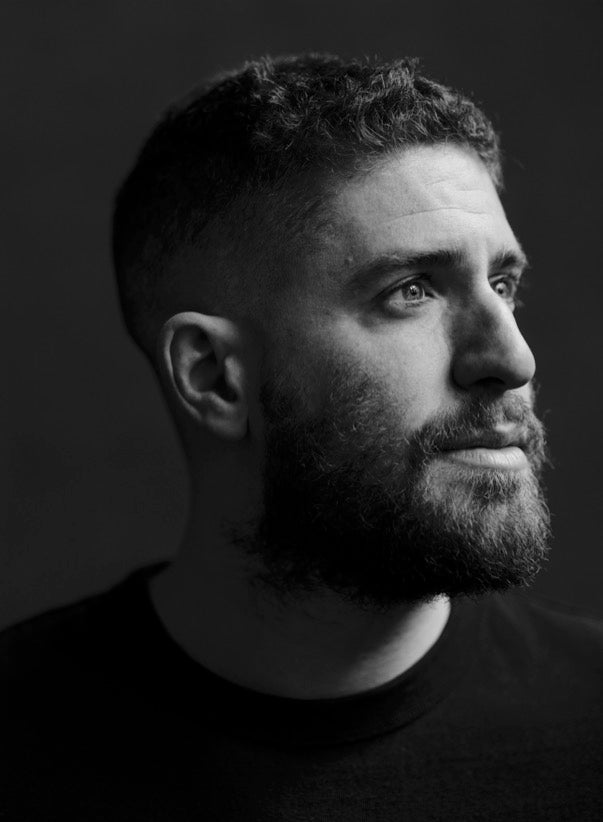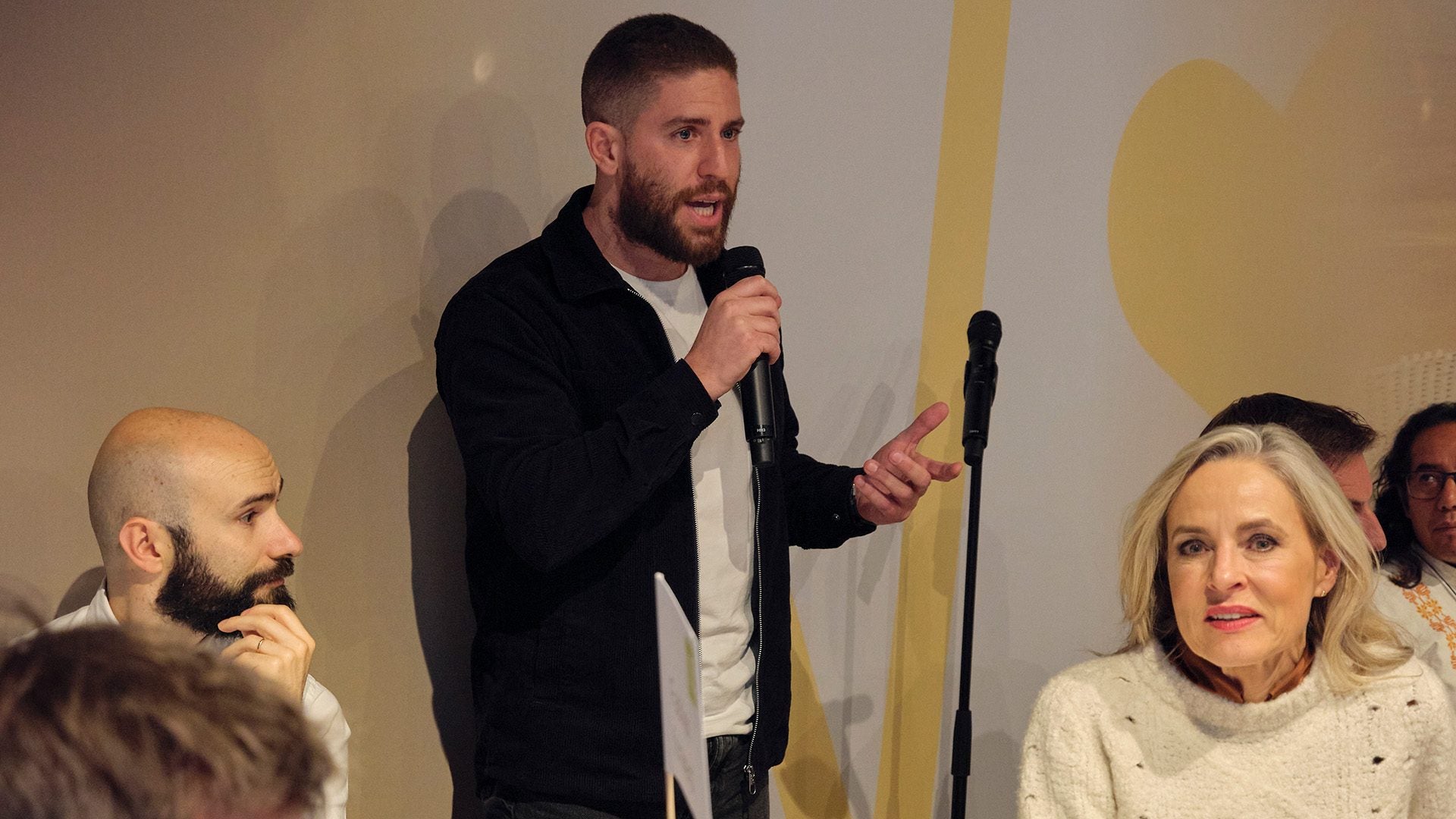Source: Business Insider Netherlands
Insoles for a tenner at the sports store. Little sounds more innocent, but according to David Even from Amsterdam, there is a world of environmental pollution behind it. For example, insoles usually consist of synthetic materials and are not recycled.
“Hundreds of millions of synthetic insoles end up on landfills every year,” says Even, sipping a cup of coffee in Amsterdam-West. “It concerns an area that is the same size as New Zealand. These mainly end up in non-Western countries. So here in Europe we do not see the problem with our own eyes.”
According to the bearded entrepreneur, producers are hardly concerned with matters such as climate and the environment. “They're all about minimizing costs so they can offer their products at the lowest price. Consumers can therefore buy the cheapest product. It is a linear economy, where no one thinks about what this ultimately costs the next generation and the planet.”
Cork Insoles
Even takes a different approach. With his startup Primal Soles, founded at the beginning of 2022 – not a reference to the 1990s group Primal Scream, by the way – he supplies insoles that largely consist of cork. After customers have finished the soles, they can hand them in to the startup. The soles are finally shredded and completely reused for new pairs.
Completely circular, says Even. As the first startup in its sector, Primal Soles has a so-called Shipment of Green List Waste contract with the European Union. Business Insider has seen this document.
By using cork, Even claims to be able to remove CO2 from the air. “It comes from the bark of the cork oak. Every nine years you have to harvest that bark so that the tree can continue to grow and remove extra CO2 from the atmosphere. You can remove 73 tons of CO2 from the air per ton of cork harvested.”
Even buys his cork from the Portuguese company Amorim Cork. This supplier from Porto extracts 8.2 kilograms of CO2 from the air per square meter of harvested cork, the company had calculated through a Life Cycle Assessment done by EY.
Amorim Cork can source its entire cork production from forests within its borders. The country is rich in cork forests, partly because Portugal already implemented laws in 1209 that prevent the felling of cork trees. This has a cultural component, because the cork oak is seen as one of the national trees in Portugal.
Cork forests are also rich in biodiversity; they attract 200 different animal species and 135 plant species, according to the company. Finally, cork ensures a soft landing when walking, as appears when Business Insider tests Even's soles.
Mopping up financially with the tap open
Replacing disposable synthetics with circular cork sounds like a simple solution to an environmental problem. Still, financially speaking, it is mopping up with the tap open for the startup, says 32-year-old Even.
His company allows customers to send their insoles for free to be recycled, but that costs about 6 euros per pair of insoles. This includes shipping, sorting and material costs, according to the entrepreneur; customers receive a free paper mailing envelope. The insoles vary in price between roughly 30 and 40 euros, but the entrepreneur says that this does not yet yield a profit. It costs something to buy cork.
The shipping of the soles also costs Even a lot. He had extra small packages designed for his soles that – including content – weigh about 200 grams and fit through the letterbox. They do not need to be packed in boxes and therefore take up less space in vans, resulting in lower CO2 emissions. Then there are the usual marketing, VAT, administrative and sales costs.
Hardly any subsidies for circular startups
Even is equally disturbed by the fact that there are few subsidies for certified circular products in the Netherlands. “I pay in full for the recycling process with my own money,” says the entrepreneur, who has already invested 20,000 euros in equity in the company. “Disposable insoles are also not subject to extra taxation, which gives these types of producers an advantage over us.”
It is not the case that there are zero subsidy schemes for circular entrepreneurs in the Netherlands. For example, there is currently a scheme under which entrepreneurs can receive a maximum of 20,000 euros for a circular project - although the budget for this scheme has already been oversubscribed.
Very nice, says Even, but not suitable for small startups like his. "We don't have the time or manpower to make dozens of applications and maybe receive 20,000 euros once. We are also applying for B Corp certification, something that linear companies don't have to deal with. Time is money. We will need to prioritize time to compete in the market." The entrepreneur is therefore not only arguing for more, but also for simpler subsidy schemes for circular entrepreneurs.
Idea: deposit money on disposable insoles
The Dutch government wants our country to operate fully circular by 2050, but according to Even, at the end of the day, the government does not seem to know how to achieve this goal. He argues for a form of deposit on non-circular disposable products, such as regular disposable insoles. “We already do that with beer bottles and PET bottles, so why don't we expand that?”

David Even of startup Primal Soles speaking at the World Economic Forum (WEF) in Davos in early 2023.
After the startup of Even won an important prize from the Financial Times business magazine at the beginning of this year, he was allowed to speak for half an hour at the coveted World Economic Forum in Davos, Switzerland. “I asked out loud why as a circular entrepreneur I can hardly get subsidies.”
He does have an idea why. “Einstein once said: you cannot solve a problem with the same mindset that created it . There's something in that, I think. We live in a time when most climate problems are caused by a group of people who made the wrong decisions. Those same people cannot solve the problems, we need a new generation of drivers for that.”
Primal Soles has so far sold about 2,000 pairs of soles to consumers, mainly in the Netherlands and the United States. Even doesn't expect to make a profit this year. The startup is currently in talks with shoe manufacturers, among others, for possible collaborations. “They will then have to raise the price of their shoes, but they can then advertise that they use circular soles.”
Primal Soles is aiming for an investment of €1.25 million
Earlier this year, the company managed to collect a donation of almost half a million euros from Swiss billionaire and environmental activist André Hoffmann. Primal Soles is looking for an investment of 1.25 million euros. The company wants to increase production and donate 20 percent to the protection of an endangered cork oak forest.
Dutch green funds have not yet caught on, but Even states that he is in talks with so-called family offices . “Because of their family background, they are more focused on the next generation. Our company may still be small, but I already have a fully circular product. Many large companies cannot say that.”




